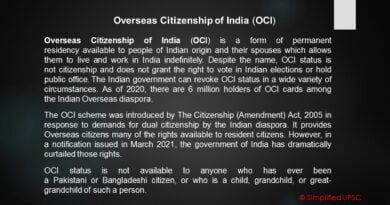World Malaria Day 2021
Context:
The report, titled ‘Zeroing in on malaria elimination’, was released by the World Health Organization (WHO) ahead of World Malaria Day 2021.
About World Malaria Day:
- World Malaria Day is observed on 25th April every year. The 2021 theme is “Reaching the Zero Malaria target”.
- The World Health Organization (WHO) has identified 25 countries, including three from Africa, with the potential to eradicate malaria by 2025 under its ‘E-2025 Initiative’, ahead of World Malaria Day 2021.
- WHO and partners will mark World Malaria Day by celebrating the achievements of countries that are approaching and achieving malaria elimination.
- The idea of World Malaria Day was developed from Africa Malaria Day. The Africa Malaria day is basically an event that has been observed by African governments since 2001, first held in 2008.
- In 2007, at the 60th session of the World Health Assembly, a meeting sponsored by the World Health Organisation (WHO) proposed that Africa Malaria Day be changed to World Malaria Day.
- It will help to identify the existence of malaria in countries worldwide and will also help to bring awareness among people globally to fight against malaria.
E-2025 Initiative:
- In 2017, WHO launched the E-2020 initiative to support a group of countries to achieve zero indigenous cases of malaria by 2020.
- Some 21 countries across five regions were identified as having the potential to reach the milestone of eliminating malaria.
- The report ‘Zeroing in on malaria elimination’ brings out the progress made through the E-2020 initiative of WHO.
- Building on the successes of the E-2020, WHO has identified a new group of 25 countries that have the potential to stamp out malaria within a 5-year timeline.
- The E-2025 countries will receive technical and on-the-ground support by WHO and its partners. In return, they are expected to audit their elimination programmes annually, participate in elimination forums, conduct surveillance assessments, and share malaria case data periodically.
- The new countries were selected based on four criteria:
- The establishment of a government-endorsed elimination plan;
- Meeting the threshold of malaria case reductions in recent years;
- Having the capacity of malaria surveillance and a designated governmental agency responsible for malaria elimination; and
- Being selected by the WHO Malaria Elimination Oversight Committee.
What is Malaria?
Malaria is a mosquito-borne infectious disease caused by various species of the parasitic protozoan microorganisms called Plasmodium. Malaria is a disease that man has battled with for a long time. The first evidence of this protozoan came from mosquitoes preserved in amber nearly 30 million years ago.
It is even thought to have brought the Roman Empire to its knees. Malaria was so prevalent during the Roman times that the disease is also called ‘Roman Fever’. Today, the credit for actually discovering the parasite is given to Charles Louis Alphonse Laveran, a French physician. He even won the Nobel Prize in 1907 for his findings.
Causes of Malaria
There are many factors that can cause malaria, such as –
- Bitten by a malarial vector (Anopheles stephensi)
- Use of shared and infected syringes.
- Organ transplantation.
- Transfusion.
- From an infected mother to her baby during birth.

Malaria Vaccine:
- Known by its lab initials as RTS,S but branded as Mosquirix, the vaccine has passed lengthy scientific trials that found it to be safe and reducing the risk of malaria by nearly 40%, the best ever recorded.
- It was developed by GlaxoSmithKline (GSK) company and approved by the European Medicines Agency in 2015.
- The RTS,S vaccine trains the immune system to attack the malaria parasite (Plasmodium (P.) falciparum, the most deadly species of the malaria parasite).
India’s Scenario:
- Malaria Burden: The World Malaria Report (WMR) 2020 released by WHO, which gives the estimated cases for malaria across the world, indicates that India has made considerable progress in reducing its malaria burden.
- India is the only high endemic country which has reported a decline of 17.6% in 2019 as compared to 2018.
- Initiatives Taken:
- In 2017, India launched its 5-year National Strategic Plan for Malaria Elimination that shifted focus from Malaria control to elimination and provided a roadmap to end malaria in 571 districts out of India’s 678 districts by 2022.
- Indian Council of Medical Research (ICMR) has recently established ‘Malaria Elimination Research Alliance-India (MERA-India) which is a conglomeration of partners working on malaria control.
Discover more from Simplified UPSC
Subscribe to get the latest posts sent to your email.


